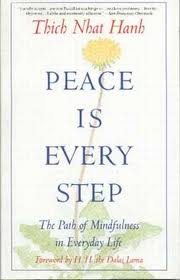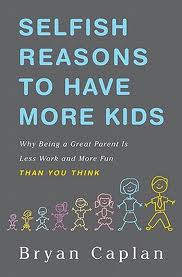Depression, OCD, Zombie Prevention, and Creativity
Variety pack from the feed:
10 Things You Should Know About Male Depression (Psych Central)
Zombie Prevention: Your Child’s Sleep (NYT)
Obsessive Fears Arise in Response to Compulsions in OCD (Psych Central)
The Creative Power of Thinking Outside Yourself (PsyBlog)
Peace is Every Step
 From the recommended reading list, Peace is Every Step by Thich Nhat Hanh, a short, simple call to mindfulness, personal and political. In the book, some nice suggestions about mindfulness practice, including these lines to silently try out during mindfulness meditation:
From the recommended reading list, Peace is Every Step by Thich Nhat Hanh, a short, simple call to mindfulness, personal and political. In the book, some nice suggestions about mindfulness practice, including these lines to silently try out during mindfulness meditation:
Breathing in, I calm my body.
Breathing out, I smile.
Worth a shot for the many who find themselves distracted when attempting silent focus on breathing. There’s also this suggestion for developing mindfulness regarding uncomfortable emotion (in this case anger):
Breathing in, I know that anger is here.
Breathing out, I know that the anger is me.
Breathing in, I know that anger is unpleasant.
Breathing out, I know this feeling will pass.
Breathing in, I am calm.
Breathing out, I am strong enough to take care of this anger.
Substitute “anxiety” or “sadness” or whatever you’re going through for “anger.” Too much to remember? Just try “Breathing in, I am _________. Breathing out, I am ___________.” You may find just slowing down and acknowledging what you’re feeling (and not wanting to feel) helps more than any distraction.
Thich Nhat Hanh’s mindfulness is Buddhist mindfulness–for a secularized (and, for better or worse, less eco/non-violence-focused) substitute, try Jon Kabat-Zinn’s Wherever You Go, There You Are.
Breathing in, you’re done reading this post.
Beyond Happiness
 A New Gauge to See What’s Beyond Happiness (NYT):
A New Gauge to See What’s Beyond Happiness (NYT):
In his 2008 book, “Gross National Happiness,” Dr. Brooks argues that what’s crucial to well-being is not how cheerful you feel, not how much money you make, but rather the meaning you find in life and your sense of “earned success” — the belief that you have created value in your life or others’ lives.
“People find meaning in providing unconditional love for children,” writes Dr. Brooks…“Paradoxically, your happiness is raised by the very fact that you are willing to have your happiness lowered through years of dirty diapers, tantrums and backtalk. Willingness to accept unhappiness from children is a source of happiness.”
Raising Anxiety
 From Slate: Girls don’t start out more anxious than boys, but they usually end up that way.
From Slate: Girls don’t start out more anxious than boys, but they usually end up that way.
When it comes to our preconceived notions about women and anxiety, women are unfairly being dragged through the mud. While women are indeed more fretful than men on average right now, this difference is mostly the result of a cultural setup—one in which major social and parenting biases lead to girls becoming needlessly nervous adults. In reality, the idea that women are “naturally” twice as anxious as men is nothing more than a pernicious illusion.
“Serenity Parenting”
 Bryan Caplan looks at twin studies and concludes: Have More Kids. Pay Less Attention to Them (WSJ):
Bryan Caplan looks at twin studies and concludes: Have More Kids. Pay Less Attention to Them (WSJ):
The obvious lesson to draw is that parents should lighten up. I call it “Serenity Parenting”: Parents need the serenity to accept the things they cannot change, the courage to change the things they can, and (thank you twin research) the wisdom to know the difference. Focus on enjoying your journey with your child, instead of trying to control his destination. Accept that your child’s future depends mostly on him, not your sacrifices. Realize that the point of discipline is to make your kid treat the people around him decently—not to mold him into a better adult.
Psychopaths, the Article
Suffering Souls, from the New Yorker, a ways back (via MindHacks):
Psychopaths are as old as Cain, and they are believed to exist in all cultures, although they are more prevalent in individualistic societies in the West. The Yupik Eskimos use the term kunlangeta to describe a man who repeatedly lies, cheats, steals, and takes sexual advantage of women, according to a 1976 study by Jane M. Murphy, an anthropologist then at Harvard University. She asked an Eskimo what the group would typically do with a kunlangeta, and he replied, “Somebody would have pushed him off the ice when nobody else was looking.”
Rejection Pain
Social Rejection Hurts Like Physical Pain (PsychCentral):
“On the surface, spilling a hot cup of coffee on yourself and thinking about how rejected you feel when you look at the picture of a person that you recently experienced an unwanted break-up with may seem to elicit very different types of pain. But this research shows that they may be even more similar than initially thought.”
Couples Communication
Study: Couples May Not Communicate Better Than Strangers (PsychCentral):
“Although speakers expected their spouse to understand them better than strangers, accuracy rates for spouses and strangers were statistically identical. This result is striking because speakers were more confident that they were understood by their spouse” […]
“A wife who says to her husband, ‘it’s getting hot in here,’ as a hint for her husband to turn up the air conditioning a notch, may be surprised when he interprets her statement as a coy, amorous advance instead,” said Savitsky, who is lead author of the paper, published in the January issue of the Journal of Experimental Social Psychology.
For Self-Compassion
Go Easy on Yourself, a New Wave of Research Urges (NYT):
[R]esearch suggests that giving ourselves a break and accepting our imperfections may be the first step toward better health. People who score high on tests of self-compassion have less depression and anxiety, and tend to be happier and more optimistic. Preliminary data suggest that self-compassion can even influence how much we eat and may help some people lose weight.
Against Surface Smiles
The Claim: A Fake Smile Can be Bad for Your Health (NYT Really?)
[S]cientists examined what happened when the drivers engaged in fake smiling, known as “surface acting,” and its opposite, “deep acting,” where they generated authentic smiles through positive thoughts, said an author of the study, Brent Scott, an assistant professor of management at Michigan State University.
After following the drivers closely, the researchers found that on days when the smiles were forced, the subjects’ moods deteriorated and they tended to withdraw from work. Trying to suppress negative thoughts, it turns out, may have made those thoughts even more persistent.
